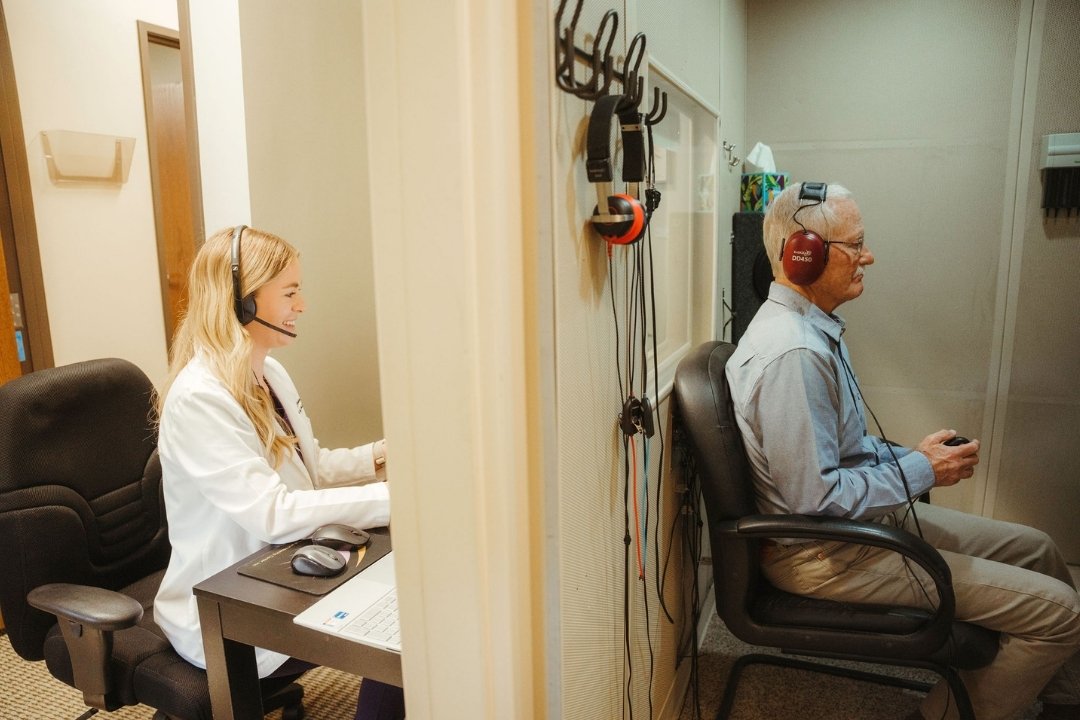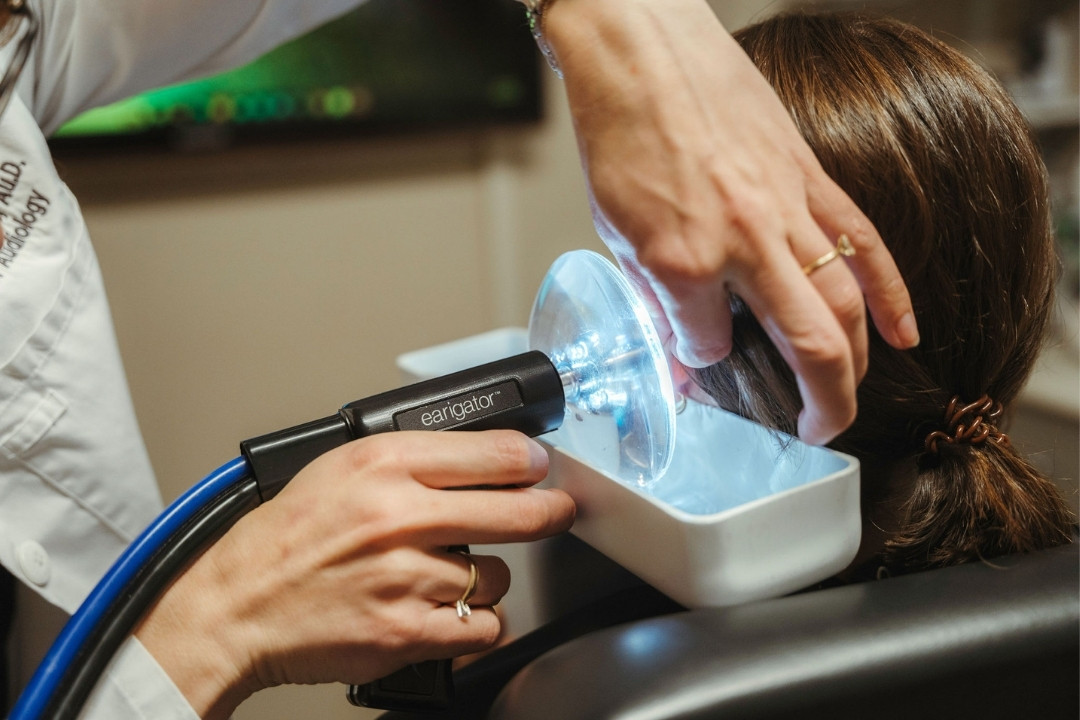Colorado's Leading Tinnitus and Hearing Experts
Struggling with ringing in your ears, sound sensitivity… or just want to hear better? Our experienced Doctors of Audiology provide compassionate, evidence-based care for tinnitus, misophonia, hyperacusis, and hearing loss, helping you reclaim your quality of life.

Treatment in Colorado
with Patient-First Approach
for Complex Cases
Specialized Tinnitus & Sound Sensitivity Clinic
We are proud to be Colorado’s first and longest-standing clinic dedicated to tinnitus, misophonia, and hyperacusis. Our reputation for clinical excellence has made us a trusted site for launching new, evidence-based tinnitus therapies.
The Gold Standard of Care
We take the time to understand your unique challenges and provide the highest standard of care, helping patients find relief when others could not.
Innovative Treatments
By staying at the forefront of tinnitus, sound sensitivity, and hearing loss care, our team delivers personalized, research-based treatment plans. We take a holistic approach—tailored to your goals and lifestyle—to support cognitive health and improve your quality of life.
Your Convenient Access
No matter where you live—Denver, Colorado, across the U.S., or abroad—our expert care and personalized solutions are easily accessible through advanced telehealth services.
Four Essential Reasons Why Patients Choose Our Practice

At Colorado Tinnitus and Hearing Center, we provide evidence-based care that treats you as a whole person—not just your ears. Our audiologists conduct thorough testing and ensure you understand your hearing health and treatment options. Every plan is personalized and delivered in a warm, welcoming environment in our Englewood office.

Biofeedback Therapy
Stress management technique that reduces tinnitus distress through heart rhythm training.
Learn About Biofeedback Therapy
Tinnitus Treatment
We provide advanced, evidence-based tinnitus management through multiple treatment approaches including Lenire, Neuromonics, Heart Math, and Modern Tinnitus.
Explore Tinnitus Solutions
Misophonia
We offer specialized treatment for misophonia using proven approaches to reduce emotional reactions to trigger sounds and develop effective coping strategies.
Read about Misophonia.jpg)
Hyperacusis
We provide specialized treatment for sound sensitivity using evidence-based approaches to help patients gradually return to comfortable daily activities.
Read about Hyperacusis.jpg)
Hearing Loss Treatment
We provide comprehensive hearing loss solutions tailored to your specific type and degree of hearing loss, from advanced hearing aids to cochlear implants for more severe cases.
Explore Hearing Loss Solutions
Hearing Tests
Our comprehensive diagnostic hearing evaluations go beyond basic screenings to thoroughly assess your hearing health for personalized treatment recommendations.
Read about Hearing Tests.jpg)
Cochlear Implants
We provide comprehensive cochlear implant services from candidacy evaluation through activation and ongoing programming for patients with severe hearing loss.
Explore Cochlear Implant Options
Auditory Training
Our LACE AI auditory training programs help train your brain to better process speech and sounds, improving comprehension even in challenging listening environments.
Read about Auditory Training.jpg)
Cognitive Screening
Our Cognivue cognitive screening service provides a quick, non-invasive assessment of brain health to identify potential cognitive concerns early, particularly important for those with hearing loss who face increased risk of cognitive decline.
Read about Cognitive Screening.jpg)
Hearing Aid Repair
We offer expert repair and maintenance for all major hearing aid brands, with quick in-house solutions and manufacturer coordination for complex issues.
Explore Repair Services
Custom Hearing Protection
We create precisely-fitted custom hearing protection devices tailored to your specific activities and environments to prevent hearing damage effectively.
Explore Custom Solutions
Earwax Removal
Our professional earwax removal service uses safe, gentle techniques to clear blockages, relieve symptoms, and improve hearing aid performance.
Read about Removal Process



Meet Our Audiologists - Tinnitus & Hearing Experts
The expert team at Colorado Tinnitus and Hearing Center includes founder Dr. Patty Kalmbach, with over 38 years of experience; Dr. Aniellia Grabowski, specializing in communication-focused care; and Dr. Danielle Jenkins, whose own hearing loss inspires her compassionate approach. All are certified in advanced tinnitus treatments, including Lenire, and provide personalized, evidence-based care.
Patient Reviews
Our patients travel from across the country to our clinic in Englewood seeking relief for their tinnitus, misophonia, hyperacusis or hearing loss. Their stories of transformation - from despair to hope, from isolation to connection - inspire us daily to continue pioneering treatments that truly make a difference.





Looking for an Audiologist in Denver, CO?
If you're looking for a local Audiologist in the Denver area, you've come to the right place. Our practice, Colorado Tinnitus and Hearing Center, is located at 3601 South Clarkson Street, Suite 220, Englewood, CO 80113. Our team of expert audiologists includes Dr. Patty Kalmbach, Dr. Aniellia Grabowski, and Dr. Danielle Jenkins, who provide patient-centered care.
We offer comprehensive services including hearing aids, tinnitus treatment, earwax removal, hearing tests, hearing aid repair, and specialized care for hyperacusis, misophonia, and sound sensitivity. We also provide advanced treatments like Lenire and Neuromonics. Contact us at 303-534-0163 to schedule your appointment.






